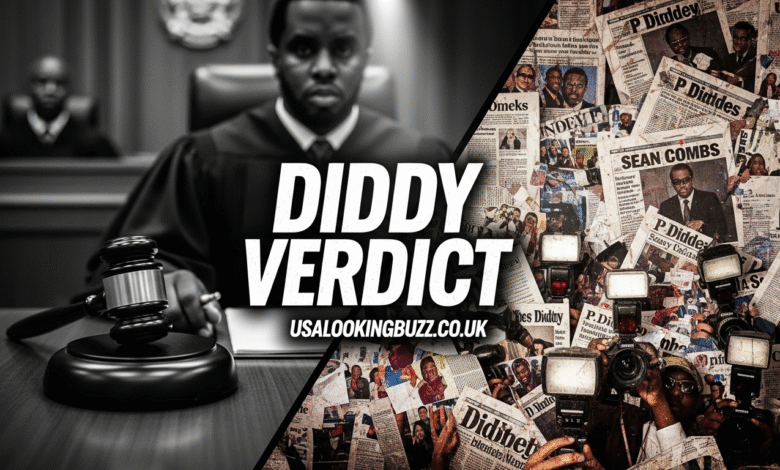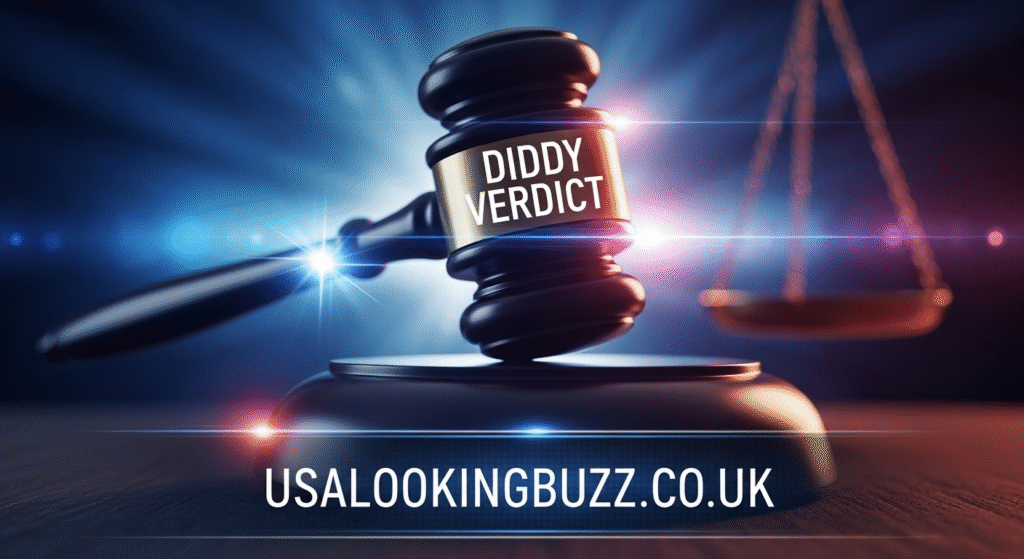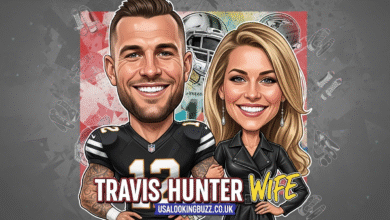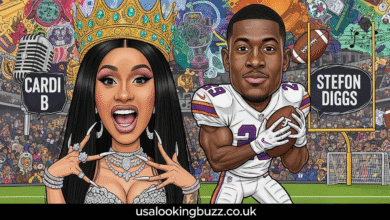Diddy Verdict: Analyzing the Recent Legal Rulings and Their Impact

Introduction to the Diddy Verdict
The recent legal case involving Sean ‘Diddy’ Combs has garnered significant attention, not only due to the public persona of the music mogul but also because of the implications the verdict holds for the entertainment industry. Centred around allegations of misconduct, the Diddy verdict has emerged as a focal point for discussions relating to accountability within the spheres of celebrity culture and corporate governance. The case has unfolded in a highly publicized manner, with numerous media outlets covering its developments closely.
At the heart of the Diddy verdict are various claims that highlight both personal and professional misconduct allegations against Combs. The key players in this case include Diddy himself, several accusers, and legal representatives from both sides. The high-profile nature of the participants has undoubtedly influenced the public’s perception, igniting debates regarding the moral stature of celebrities and their responsibilities towards their personal actions and societal roles.
The ruling issued in this case has sparked widespread commentary about its potential ramifications. The outcome may not only have dire consequences for Combs but may also set a precedent for similar cases in the future, illustrating how legal frameworks interact with the complexities of fame and celebrity culture. As further discussions unfold, this verdict’s implications are being examined from various angles, including legal, ethical, and industry-specific perspectives. The Diddy verdict thus acts as a critical juncture, prompting both stakeholders within the music industry and the public at large to reevaluate perceptions surrounding celebrity accountability and the repercussions of legal decisions in the entertainment sector.
Background of the Case
The legal saga leading to the Diddy verdict is rooted in a series of events that have garnered significant public attention over the years. Initially, the controversy gained traction in the late 1990s and early 2000s, following numerous incidents involving the hip-hop mogul Sean Combs, popularly known as Diddy. These incidents, ranging from allegations of misconduct to disputes within the music industry, set the stage for the legal turmoil that would unfold in subsequent years.
The current case emerged amidst a backdrop of heightened scrutiny over Diddy’s business practices and interpersonal relationships. A pivotal moment occurred in 2022 when a lawsuit was filed against Diddy by a former associate, claiming breach of contract and other allegations that threatened to tarnish his reputation further. This lawsuit, alongside previous claims, created a complex legal picture for the artist and entrepreneur.
The allegations against Diddy varied, including claims of financial improprieties and personal misconduct, all of which stemmed from a history of contentious relationships with collaborators and partners. Over the years, these controversies have contributed to a perception of unpredictability surrounding Diddy, making the recent verdict particularly anticipated by the public and media alike. The timeline of events, including settlements and public statements, culminated in the legal proceedings that defined this case.
As the legal arguments were presented, the context surrounding each claim provided critical insights into Diddy’s past, intertwining with larger themes of accountability and ethics in the entertainment industry. The Diddy verdict not only represents the outcome of an individual case but also reflects the complexities of celebrity culture and the legal consequences that can arise from personal and professional relationships.
Details of the Verdict
The recent legal ruling concerning the Diddy verdict has garnered considerable attention, given the prominence of the figures involved and the broader implications for celebrity conduct in legal contexts. The court delivered its decision after an extensive examination of the claims brought against Sean Combs, known as Diddy, highlighting several critical findings that have shaped the verdict. The judge underscored the significance of evidence presented during the trial, which included testimonies, documentary support, and expert opinions. Ultimately, the court’s ruling attributed weight to the credibility of witnesses who supported the allegations against Diddy.
One notable element of the judge’s statements was the acknowledgment of the cultural context surrounding the allegations. The ruling reflected an understanding of the pressures that accompany public life, as well as the responsibility that comes with such a high-profile status. The court observed that while celebrity status does not exempt individuals from scrutiny, it also adds layers of complexity to legal proceedings, a point which may influence future cases similar to the Diddy verdict.
In addition to the core ruling, the verdict included dissenting opinions from some members of the judiciary who argued for a more lenient interpretation of the evidence. These dissenting voices raised questions about the sufficiency of the evidence relative to the burden of proof required for the accusations. This divergence in opinions within the court further illustrates the challenges posed by cases that involve public figures, where public opinion and judicial attitudes may clash.
Overall, the Diddy verdict serves as a pivotal moment in the legal landscape, impacting not only the parties directly involved but also setting a precedent for how similar cases might be analyzed in the future. The legal nuances illuminated by this ruling will likely resonate in discussions surrounding celebrity accountability and legal standards moving forward.
Reactions from Diddy and Legal Teams
Following the announcement of the diddy verdict, both Sean Combs, widely known as Diddy, and his legal representatives promptly released statements reflecting their perspectives on the ruling. The verdict has become a focal point of discussion, prompting varied reactions that highlight the nuances of Diddy’s public persona and legal strategy moving forward.
Diddy took to social media platforms shortly after the verdict was released, expressing his disappointment and frustration regarding the decision. In a series of posts, he emphasized his commitment to fighting for what he believes in, suggesting possible future actions against the ruling. His statements were laced with phrases such as, “This is not the end,” indicating a determination to appeal the ruling or seek other legal remedies. Moreover, his public persona as a resilient and ambitious figure was evident, as he rallied his supporters by emphasizing the importance of staying strong in the face of adversity.
On the legal front, Diddy’s legal team released a formal statement highlighting their disagreement with the verdict. They expressed their belief in the strength of their case, arguing that substantial evidence that could potentially overturn the decision had been overlooked. The attorneys maintained a tone of professionalism, cautiously outlining their next steps while preparing for a possible appeal. Interviews with members of the legal team revealed that they are meticulously strategizing to ensure that their arguments are effectively presented in future proceedings.
These responses demonstrate how the diddy verdict has significant implications not only for Diddy himself but also for the broader cultural landscape. As the case continues to unfold, public interest will likely remain high, given Diddy’s prominence within the entertainment industry and the high stakes involved in his legal battles.
Public and Fan Reactions
The recent Diddy verdict has sparked a wide range of reactions from the public and his extensive fanbase. Social media platforms have become the primary battleground for opinions, where both supporters and detractors of the decision have expressed their views. Many fans have taken to Twitter and Instagram to voice their support for the music mogul, emphasizing his impact on the music industry and culture. Hashtags related to the Diddy verdict have trended, showcasing solidarity among his admirers, while also amplifying opposing viewpoints.

Conversely, a significant segment of the public has critiqued the ruling, focusing on its implications for accountability and justice in the entertainment industry. Users on platforms such as TikTok have created videos debating the verdict’s fairness, highlighting the ongoing societal discourse surrounding celebrity influence. These discussions often extend beyond Diddy to encompass broader themes of power dynamics and the legal system’s treatment of high-profile individuals. The division in public opinion reflects the complex nature of celebrity culture, where adoration often clashes with moral scrutiny.
In some cities, organized protests emerged, rallying against the perceived leniency of the verdict. Activists have emphasized the need for accountability, drawing parallels between Diddy’s influence and larger systemic issues within the industry. In contrast, support rallies have appeared in other areas, celebrating Diddy’s contributions to music and philanthropy. This juxtaposition illustrates the social significance of the Diddy verdict and its resonance within the cultural landscape. The ongoing dialogue surrounding the case underscores the complexities of celebrity accountability and the emotional investment fans have in their idols.
Implications for Diddy’s Career
The recent diddy verdict carries significant implications for the multifaceted career of Sean Combs, widely known as Diddy. In the ever-evolving entertainment landscape, legal outcomes can dramatically reshape an individual’s public perception and influence professional opportunities. As a prominent figure in music, business, and culture, the repercussions of this ruling are worthy of a thorough examination.
In the short term, Diddy’s public image may experience fluctuations as media coverage and public sentiment react to the verdict. With his reputation on the line, the ruling could lead to an immediate decline in collaborations and partnerships, particularly with brands that prioritize a positive public persona. This decline might influence his business ventures, including his clothing lines and the marketing of his beverage brands, as potential collaborators reassess their relationships based on the prevailing public narrative.
Looking at long-term effects, the diddy verdict may serve as a catalyst for Diddy to pivot his career trajectory. The ruling may encourage him to focus on projects that resonate well with audiences who support resilience and growth in the face of adversity. Moreover, Diddy may opt to increase his philanthropic efforts as a method to counteract any negative perceptions and reaffirm his commitment to positive social change, thereby enhancing his public standing.
In the competitive entertainment industry, the ability to navigate challenges is paramount. For Diddy, adapting his brand strategy and exploring new opportunities in music, television, and film will be crucial. Establishing new partnerships that reflect a commitment to accountability and rehabilitation may help him regain and fortify his position within the industry. While the verdict presents immediate challenges, it also holds the potential for long-lasting transformation in his career and personal brand.
The Legal Landscape for Celebrities
The recent diddy verdict serves as a critical reference point for understanding the evolving legal landscape which governs celebrities and their accountability. In recent years, there has been a notable increase in the frequency of lawsuits involving public figures, as various celebrities face legal scrutiny for their actions both in and out of the limelight. From defamation suits to contract disputes, emerging trends reveal the extensive legal challenges that celebrities regularly navigate.
Public perception plays a significant role in these legal affairs. Audiences and fans are quick to form opinions based on media portrayals and social media narratives, resulting in a potent combination of public sentiment and legal accountability. Celebrities now find themselves under increased scrutiny, with the public’s reaction often influencing legal outcomes. The diddy verdict highlights this intersection between societal expectations and legal consequences, as juries may exhibit bias based on a celebrity’s historical behavior or public persona.
Moreover, the implications of the diddy verdict extend beyond the current case. Legal experts speculate that this ruling could set a precedent for how similar lawsuits are handled in the future, impacting both the legal defenses available to celebrities and the expectations of accountability from the public. As more celebrities face allegations and lawsuits, courts are likely to scrutinize the nuances of celebrity behavior more closely, reevaluating previous legal frameworks that may have afforded public figures greater leeway.
In this context, understanding the legal repercussions stemming from the diddy verdict is essential for comprehending the wider implications it may have on future legal actions involving other public figures. As societal norms continue to shift, so too must the legal frameworks that govern celebrity accountability, making this moment a pivotal one in the realm of entertainment law.
Looking Forward: What’s Next for Diddy?
The recent diddy verdict has undoubtedly marked a significant milestone in Sean Combs’ legal journey, prompting speculation about his potential next steps. As the dust settles on the ruling, one of the most pressing questions is whether there will be an appeal. Legal experts suggest that given the high stakes involved, particularly regarding Combs’ reputation and career, a challenge to the verdict may be a viable option on the table. An appeal process can be lengthy and complex, but it often provides a pathway to reevaluate the particulars of a case that may have resulted in an unfavorable outcome.
In addition to potential legal maneuvers, Diddy may also find himself embroiled in ongoing legal battles that could complicate his public perception further. The music mogul has faced scrutiny from various fronts, and managing this landscape effectively will be critical to his strategy moving forward. This may involve hiring new legal counsel, negotiating settlements, or actively engaging in public relations efforts to counteract negative perceptions stemming from the recent ruling.
Moreover, Diddy may pivot his career to adapt to the challenges presented by the verdict. Historically, artists and business figures have navigated similar obstacles by reinventing their public personas or shifting their focus to different ventures. For instance, he could explore collaborations with other prominent figures in the entertainment industry or invest in emerging markets that resonate with his brand ethos. The evolution of his career could not only mitigate the impact of the verdict but also position him as a resilient figure capable of overcoming adversity.
In conclusion, the trajectory ahead for Diddy will likely be shaped by a combination of legal strategies, public relations efforts, and potential career transformations. The diddy verdict serves as a catalyst for change, offering both challenges and opportunities in his ongoing narrative.
Conclusion and Final Thoughts
The recent legal rulings concerning the Diddy verdict have sparked considerable discussion and analysis within both legal and social frameworks. As a pivotal moment in celebrity culture, this verdict underscores not only the responsibilities of public figures but also the broader implications of their actions. It serves as a reminder that celebrities, like any other members of society, are subject to legal accountability and must navigate the complexities that come with their influence.
This landmark case offers crucial insights into how the legal system addresses issues related to celebrity conduct, potentially setting standards that may affect future cases involving public figures. The discussions surrounding the Diddy verdict have also shed light on the gaps that exist in the legal protections afforded to both the accusers and the accused. Through this lens, it becomes clear that the legal implications are not simply confined to the individuals involved but resonate with societal norms regarding accountability and morality.
Furthermore, the reaction to the Diddy verdict reflects the evolving dynamics between celebrity status and public perception. As celebrities wield a significant amount of influence, the courts are increasingly tasked with balancing the scales between personal freedoms and societal expectations. This case ultimately prompts readers to consider their own perceptions of accountability in the celebrity sphere and encourages a deeper reflection on what this verdict signifies for future interactions within the realms of fame, power, and responsibility.
In light of the complexities revealed by this ruling, it is essential for readers to engage with the material thoughtfully. The Diddy verdict is not merely an isolated event; it is a window into the ongoing dialogue about celebrity accountability that continues to evolve. Reflecting on its implications leads to a richer understanding of how society navigates the intricate relationships between legal expectations and the personas of public figures.




